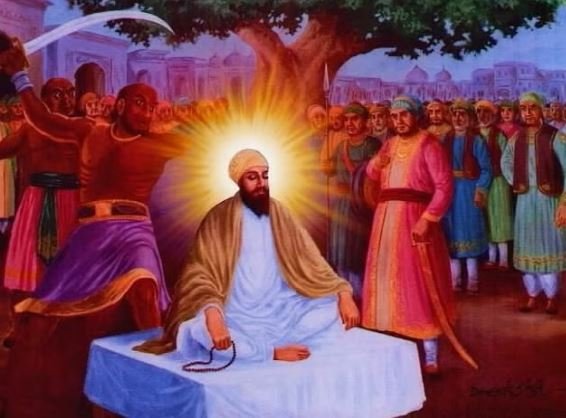The 350th martyrdom commemoration of Sri Guru Tegh Bahadur Ji in Jammu was far more than a religious observance. It emerged as a powerful moment of collective remembrance, a reminder that the values the ninth Sikh Guru stood for continue to shape the moral and cultural foundations of our society. As thousands joined the Nagar Kirtan, the streets resonated not only with devotional hymns but also with a unique sense of unity and shared identity, reinforcing the belief that heritage can be a bridge to healing and social cohesion.
Guru Tegh Bahadur Ji’s sacrifice is one of the most profound acts of spiritual courage in the history of the subcontinent. He gave his life to defend the right to religious freedom, standing firm against tyranny at a time when oppression sought to silence faith and conscience. His martyrdom emboldened future generations to uphold justice, dignity, and compassion even in adversity. In a region like Jammu and Kashmir, where diverse communities have coexisted through both harmony and hardship, recalling his teachings serves as a moral compass for building a more inclusive and empathetic society. The Nagar Kirtan held to mark this historic anniversary brought together people from various backgrounds who united in reverence for a shared legacy. Such collective participation is an important reminder that public commemorations can transcend religious boundaries and foster interfaith solidarity. When people gather to honour a figure whose life was devoted to protecting others, they naturally internalize the principles he championed. For children and young adults, these events become lessons in historical consciousness and ethical citizenship, helping them understand that the freedoms they enjoy today were secured through immense sacrifice. At the same time, large-scale religious gatherings in a sensitive region like Jammu require careful management, community cooperation, and administrative vigilance. This year’s event illustrated how security agencies, civil administration, and community organizations worked together seamlessly to facilitate a grand yet peaceful celebration. In this synchrony lies an important message. When faith, governance, and civic responsibility align, society becomes more resilient against forces that attempt to divide or destabilize it. The devotees who walked in the procession, the religious leaders who guided its rituals, and the officials who ensured safety collectively demonstrated that harmony is sustained not by passive coexistence but by active collaboration. Another significant aspect of this commemoration lies in the way it reinforces the idea of national identity through spiritual values. Guru Tegh Bahadur Ji’s martyrdom is not confined to Sikh history alone; it is a chapter of India’s collective heritage. His sacrifice shaped the moral architecture of the nation by asserting that true patriotism lies in safeguarding the dignity and rights of all communities. At a time when the country is striving to strengthen social unity and reaffirm shared constitutional values, celebrating his legacy helps keep those ideals alive in public consciousness. The commemoration also underlined the relevance of historical memory in contemporary discourse. In a society navigating rapid change, rising aspirations, and lingering challenges, reflections on the past provide a sense of rootedness. Guru Tegh Bahadur Ji’s message of selfless service, humility, and harmony offers a blueprint for social renewal. When communities celebrate such legacies, they engage in an act of cultural reclamation that strengthens their social fabric. These celebrations remind us that the foundations of our nation have always rested on values rather than narrow identities. The response of the people of Jammu and Kashmir to the anniversary was a clear reflection of their desire to carry forward a legacy that encourages unity and discourages division. The overwhelming turnout at the Nagar Kirtan demonstrated the power of faith to bring people together and the continued relevance of Guru Tegh Bahadur Ji’s teachings in guiding ethical behaviour. This unity stands especially meaningful at a time when societies across the world grapple with polarization, intolerance, and mistrust.
The spirit of the commemoration carries a gentle but firm reminder that harmony is not built in isolation. It grows when citizens embrace shared values, honour their past, and work together for a peaceful and dignified future. In remembering Sri Guru Tegh Bahadur Ji, the people of Jammu and Kashmir reaffirmed their commitment to these ideals and demonstrated how heritage can be a catalyst for deeper social and cultural renewal.




